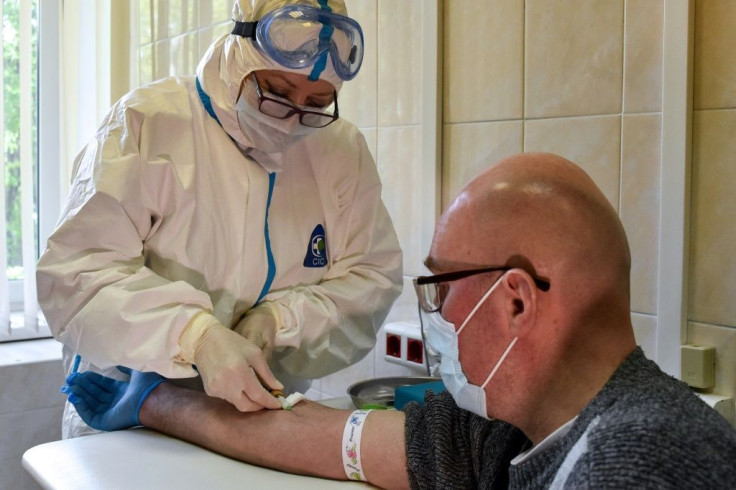Scientists Discover Antibodies Inhibiting SARS-CoV-2 In Survivor Who Had SARS 17 Years Ago
KEY POINTS
- SARS survivors have developed antibodies against the disease
- Researchers now discover that these antibodies called S309 are effective against SARS-CoV-2 too
- This could pave the way for using this antibody as a preventive measure to fight COVID-19
An individual who caught severe acute respiratory syndrome (SARS) infection more than 17 years ago might become a solution to the experts who are in search of therapies to fight the novel coronavirus. This person who had SARS in 2003 contained an antibody which seems to be inhibiting the new coronavirus, SARS-CoV-2, according to new research.
The wonder antibody: S309
Apart from the body’s own immune response to pathogens, researchers have identified a particular antibody named S309 which exhibited a strong ability to bind to as well as disable the spike protein on SARS-CoV-2 that enables the entry of the virus into the host cells, according to a statement from the University of Washington School of Medicine. Several researchers who took part in the study work for Vir Biotechnology. The biotech firm is now developing a therapeutic based on the findings of this research.
The study:
The researchers identified monoclonal antibodies of interest from the memory B cells of the SARS survivor. The memory B cells are formed after any infectious illness and their lineage will last even for a lifetime. These cells will remember pathogens, as well as ones similar to it, that the body has ousted in the past and during a re-infection, will launch an antibody defense against it.
Several of these antibodies from the SARS survivor’s memory cells are directed at a particular protein structure on the novel coronavirus. The S309 antibody is particularly potent at targeting as well as disabling the spike protein and neutralize it.
The researchers also proved through their cryo-electron microscopy studies and binding assays that the S309 antibody recognizes a binding site on the novel coronavirus that is conserved across several sarbecoviruses including the SARS and the SARS-CoV-2. This explains why this antibody is able to act against related coronaviruses instead of being single-minded.
“Antibody cocktails including S309 along with other antibodies identified here further enhanced SARS-CoV-2 neutralization and may limit the emergence of neutralization-escape mutants. These results pave the way for using S309- and S309-containing antibody cocktails for prophylaxis in individuals at high risk of exposure or as a post-exposure therapy to limit or treat severe disease,” concluded the researchers in their paper published in Nature.

© Copyright IBTimes 2024. All rights reserved.






















